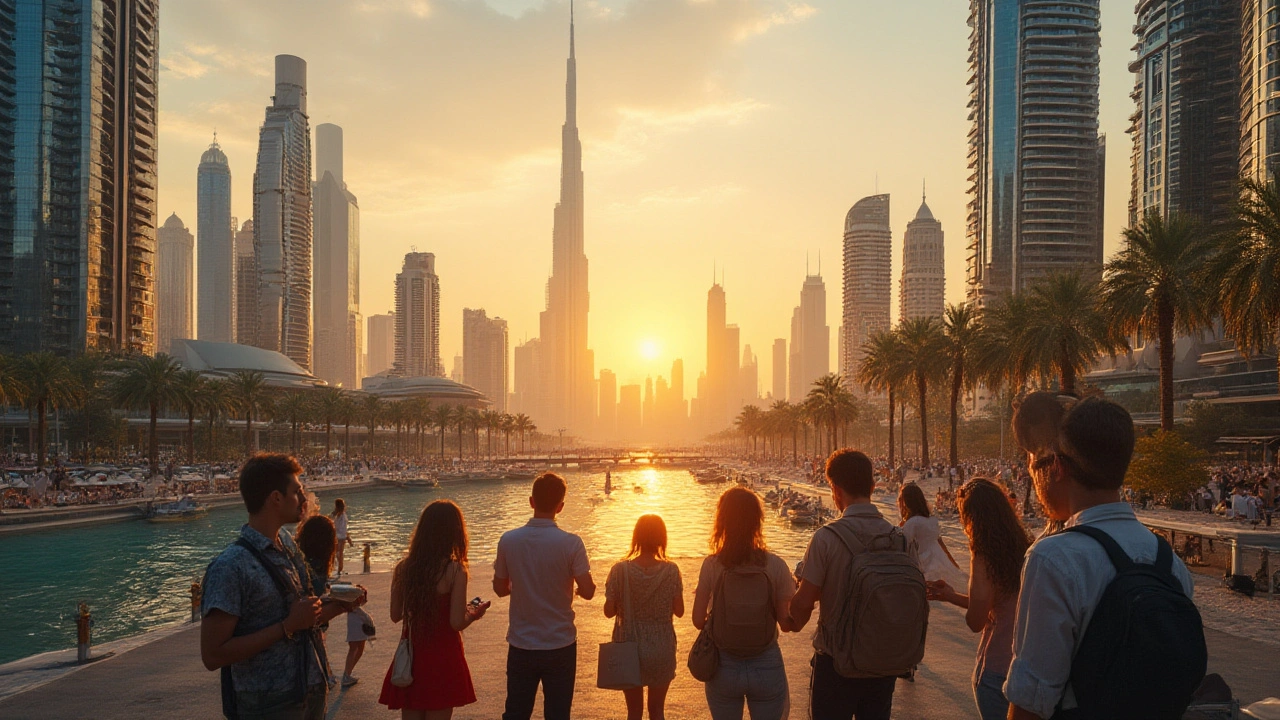Dubai Expenses: How Much Does Life Cost in 2025?
Thinking about moving to or visiting Dubai and wonder what you’ll actually spend? You’re not alone. The city looks glittery, but the price tags can surprise you. Below you’ll find a straight‑forward breakdown of the biggest cost areas and practical tips to keep your wallet happy.
Everyday Costs You Can Expect
Housing. A one‑bedroom apartment in a central area like Downtown or Marina runs about 7,500 AED per month, while the same size in a suburban district drops to 4,500 AED. If you’re okay with sharing, a room in a shared flat can be as low as 2,000 AED. Remember that most leases require a security deposit equal to one month’s rent.
Food & groceries. Eating out at an inexpensive restaurant costs roughly 35 AED per meal, and a three‑course dinner for two at a mid‑range place sits around 250 AED. Groceries are cheaper if you shop at local supermarkets like Carrefour or Lulu; a weekly shop for one person (rice, chicken, veggies, dairy) averages 250‑300 AED.
Transport. Public transport is affordable – a Nol card for the metro and buses costs about 150 AED per month if you travel daily. Taxis start at 12 AED and add 2 AED per kilometer, so a typical 10‑km ride is roughly 30 AED. Ride‑hailing apps often add a small surcharge, but they’re still cheaper than owning a car when you factor in fuel, parking, and insurance.
Entertainment & nightlife. A movie ticket is about 35 AED, while entry to a popular nightclub can range from 100‑250 AED, depending on the venue and drinks. Beach access is free, but water sports like jet‑skiing start at 250 AED per hour. If you love shopping, expect to spend more at high‑end malls; a modest souvenir can be bought for 30‑50 AED.
Healthcare & other essentials. A basic doctor’s visit in the private sector costs 300‑500 AED. Health insurance is highly recommended – many employers provide it, but if you’re self‑funded, a decent plan starts at 800 AED annually. Mobile phone plans start at 150 AED for 5 GB of data, and internet at home averages 300 AED per month.
Smart Ways to Save Money
First, look for off‑peak housing deals. Many landlords lower rent during summer months when demand dips. Signing a longer lease (12‑24 months) can also shave off 5‑10 %.
Cook at home whenever possible. Buying bulk staples like rice, lentils, and frozen chicken cuts your grocery bill by a third. Local markets (souks) often have fresh produce at half the supermarket price.
Use the metro for daily commutes. It’s clean, safe, and far cheaper than taxis. If you need a car occasionally, consider car‑sharing services that let you rent by the hour.
Take advantage of free attractions – the Dubai Fountain, public beaches, and city parks cost nothing. Look for happy‑hour deals at bars; many offer drinks for 30‑40 AED after 6 pm.
Finally, set a simple budget. For a single expat, a comfortable monthly spend looks like this: 6,000 AED for rent, 1,200 AED for food, 200 AED for transport, 500 AED for entertainment, 400 AED for utilities and phone, and 500 AED for misc. That totals around 8,800 AED, roughly 2,400 USD. Adjust the numbers to fit your lifestyle, but the framework helps you stay in control.
Dubai can feel expensive, but with a few savvy choices you’ll enjoy the city without breaking the bank. Use this guide as a starting point, track your expenses, and you’ll quickly see where you can trim or splurge. Happy budgeting!
-
 VIEW POST
VIEW POSTDubai Trip Cost Guide: 7 Days of Luxury, Adventure, and Real Prices
Jul, 16 2025|0 CommentsHere's a real-world look at how much a 7 day trip to Dubai actually costs. Learn what you’ll spend on hotels, food, attractions, nightlife, and more with practical tips, real prices, and fun facts. -
 VIEW POST
VIEW POSTIs Dubai Expensive to Visit? A Deep Dive Into Costs
Feb, 25 2025|0 CommentsDubai, known for its opulence, might seem like a pricey destination, but with some insider tips, it's possible to experience its glamour without breaking the bank. From affordable accommodations to using public transport smartly, there are many ways to manage your budget in this sparkling city. The article shares insights on how to make the most of your trip and highlights key expenses to keep in mind. Find out how different attractions and lifestyle choices impact your wallet in Dubai.